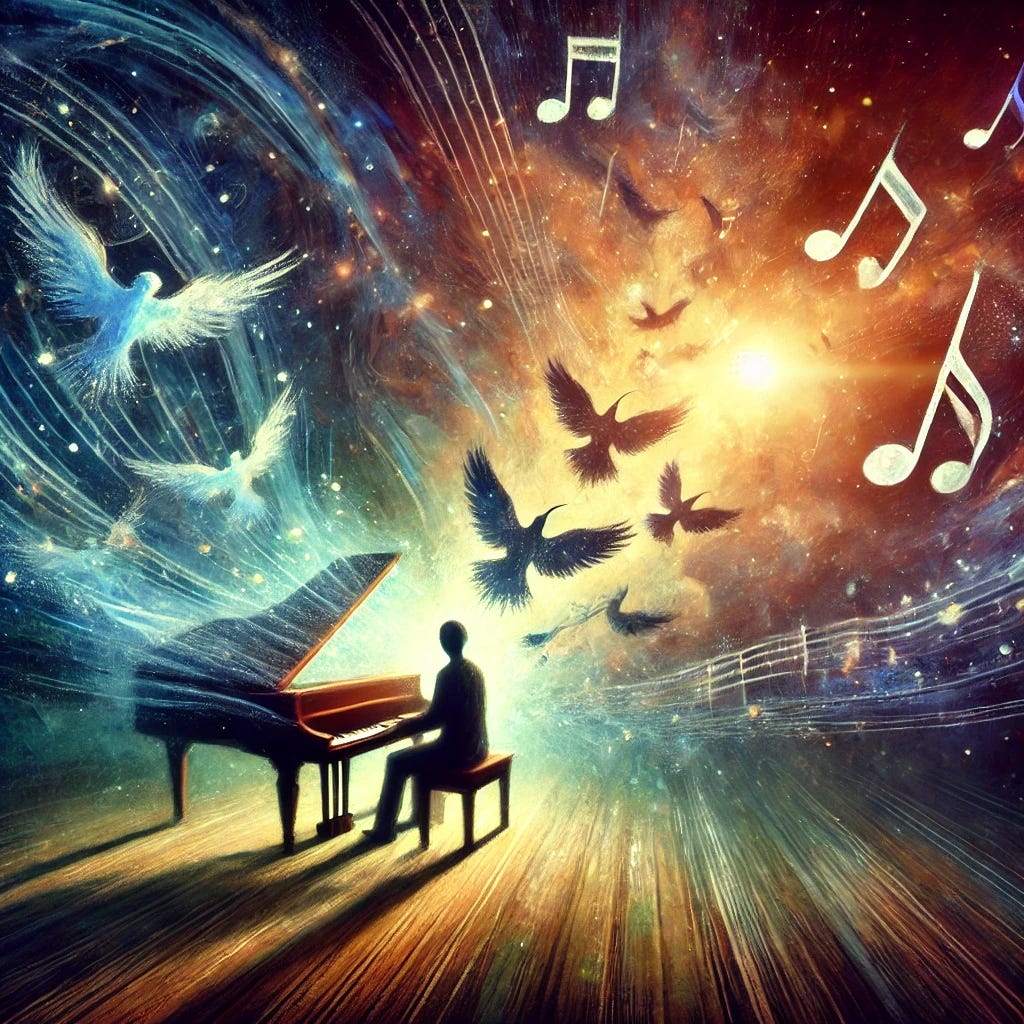Every creative act strives towards the transcendent, towards passing beyond the borders of the given world. The creative act is always liberation and conquest. It is an experience of power. In essence, creativity is a way out, an exodus; it is victory.
—Nicholas Berdyaev
A few years ago, when my day job threatened layoffs during a restructuring, I wrote a handful of humorous and irreverent limericks about how the proposed RIFs were destined to come back and bite them in the ass. I only shared them with a few people, and my job was ultimately spared, but my writing them was enough. They helped me laugh at the absurdity of corporate life, transforming uncertainty into something I could control.
It wasn’t the first time creativity had saved me.
The Russian philosopher Nicholas Berdyaev (1874-1948) saw creativity as a sacred act, linking human beings to the divine. He viewed human freedom as both a blessing and a burden. Humans have the possibility, the responsibility even, to play a role in fulfilling divine creation. Some of Berdyaev’s views were radical enough (though he advocated for neither capitalism nor Marxism) to get him kicked out of Soviet Russia in 1922 on something called “The Philosophers’ Ship.”
I have always bristled when people referred to my creative work as a "hobby" or a luxury to occupy my so-called “spare” or “free” time—as if there is such a thing as "free" time. All time has a cost.
The poet Dana Gioia said recently in an interview with David Perell, “Your life is like a wallet full of one-hour bills. I'm going to take this hour, this hour, that hour. You only have 24 hours to spend every day.”
Calling creativity a luxury misrepresents its essence. For me, it has always been essential. It has never been about having something to do; it has been about discovering a way to navigate life's myriad challenges.
High school is one of those periods of life that people often joke about surviving—almost as if it were a war. They say they got through it with the help of friends, sports, after-school activities, music, and maybe even drugs. But those things weren’t distractions; they were lifelines. Many teenagers wouldn’t have made it through high school without them. And adulthood doesn’t necessarily get easier, though we (hopefully) get better at navigating the minefields and horrors.
Music was the creative experience that helped me through high school. I stayed up late in my bedroom with my record player, listening to new wave and punk records that mirrored my teenage angst. One such record that helped was “Modern World” by the Jam which is a 2.5-minute fuck you to social conformity, class division, and traditional expectations.
I played the piano, engaging in the structured playing I learned in lessons—scales, Mozart, Beethoven, Bach—and then there was the more urgent music that emerged when I would run home, bursting with anxiety, to express something angry or aching. Playing the piano was a way to transform feelings into something I could externalize so they wouldn’t consume or destroy me.
I’m confident that is part of what Berdyaev meant. But creativity isn’t just about understanding and processing reality. It’s about taming it and gaining power by recreating it, which proves individual freedom. It can become a means of encapsulating time. Never mind immortality; reaching forward from one’s teenage years to adulthood is enough. I still have the music I wrote in my teens, poems, and song lyrics. Art is an act of preservation, and it can be considered a success even if the only person it saves is you.
When I have lost my way creatively, it’s often been because I’ve started thinking of my work as something to perform. Suppose I write to impress instead of writing what needs to come out of me. The work that matters, the work that has always mattered—is the work that transforms, takes loss and turns it into magic, takes grief and makes it sacred and beautiful, takes pain and generates a sweet sadness. Art is a survival mechanism and transformative experience first and foremost and everything else second. (Hence the “fuck the critics” sentiment present in the Jam song “Modern World.”)
I fear AI-generated creativity, not because AI Large Language Models may someday replace writers. It’s not that their output is without value. The benefit of creating art is diminished when you don’t engage in it yourself. The healing, transformation, and sense of agency arise from the process, not the product. Writing something by hand, from your mind and body, transforms you. The completed work is significant. But the victory lies in the making.
Even the essay was written more for me than for you. That’s how it should be. The work that matters is the work that transforms the creator first.
That said, thank you for reading. And here’s wishing you meaningful acts of creation.




